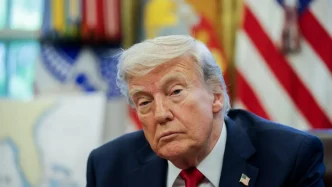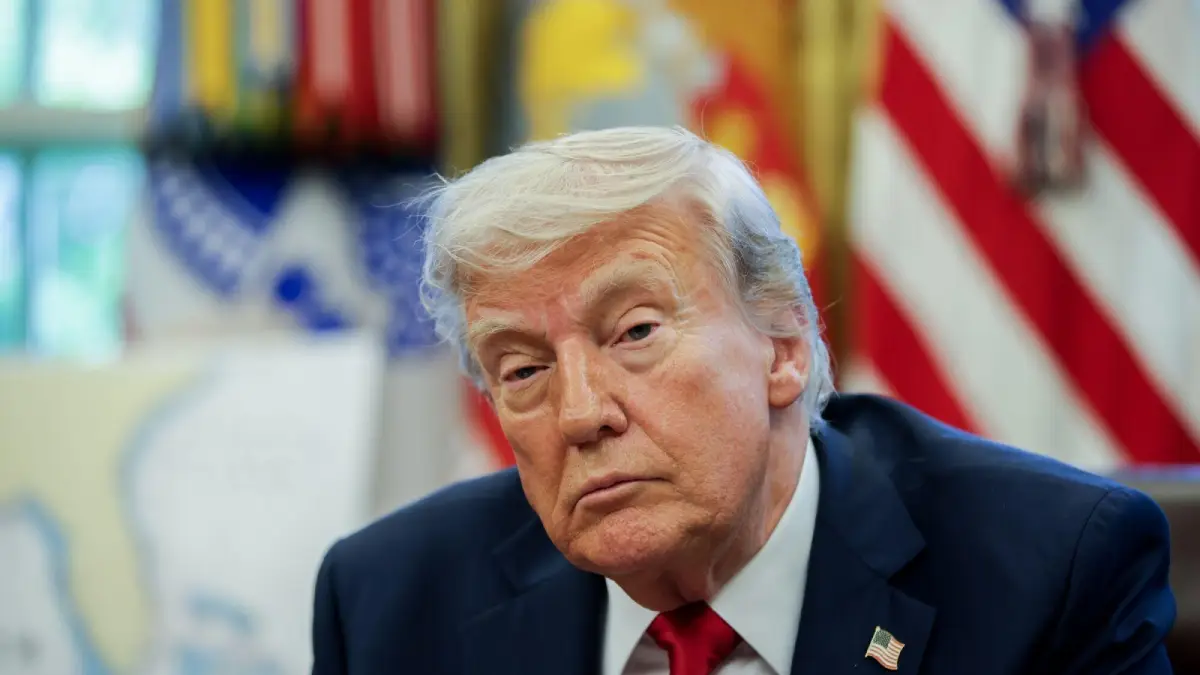Indonesia has announced a sweeping overhaul of its import regulations, aiming to streamline access to specific goods and raw materials while eliminating overlapping rules that have long frustrated industry groups. The move, unveiled on July 1, 2025, comes just days before a critical July 9 deadline in ongoing bilateral tariff negotiations with the United States, signaling Jakarta’s intent to ease trade tensions and foster a more business-friendly environment.
A Strategic Shift in Trade Policy
The new regulations, introduced by the Indonesian government, are designed to simplify import licensing and reduce non-tariff barriers, a step that Coordinating Economic Minister Airlangga Hartarto described as a phased effort to align with international trade expectations. “Deregulation will be conducted in stages. There are measures we’ve already implemented, and others will depend on the outcome of the tariff negotiations,” Airlangga told reporters at a press conference on July 1, 2025, as reported by local media.
At the heart of this policy shift is the replacement of previous Trade Minister regulations No. 36/2023 and No. 8/2024, which imposed strict conditions and quotas on a wide range of imports. These will be superseded by Trade Minister Regulation No. 16/2025 and eight sector-specific accompanying rules, set to take effect 60 days after their issuance. The updated framework promises greater flexibility, particularly for industries reliant on imported raw materials.
Trade Minister Budi Santoso emphasized the need for clarity in trade governance, noting that the new policy aims to eliminate overlapping regulations that have created uncertainty for businesses. “We have grouped the trade regulations by sector to make it easier to adjust if needed, since these rules are dynamic and we need to stay responsive to future changes,” Budi said during a press briefing on July 1, 2025.
Prioritized Commodities and Industry Impacts
The deregulation targets five key commodity groups for immediate relief from import restrictions: forestry products, subsidized fertilizers, raw materials for plastics, alternative fuel types, and food trays linked to President Prabowo Subianto’s flagship free nutritious meals program. These goods will face no import limitations, a significant departure from previous policies that often stifled supply chains.
For other product categories, including saccharin, cyclamate, alcohol-based fragrance preparations, certain chemicals, pearls, footwear, and two- and three-wheeled bicycles, the government has eased requirements. These imports will now only need verification from state-appointed surveyor agencies, rather than full import approvals from relevant ministries—a change expected to cut bureaucratic red tape.
Deputy Industry Minister Faisol Riza highlighted the potential benefits for manufacturers, many of whom have long sought simpler access to raw materials. “The easing of import requirements and restrictions will help industry players who have been asking for an easier way to import essential inputs,” Faisol stated on July 1, 2025, during a media interaction.
However, the policy is not without its complexities. While the government aims to placate international partners like the United States, it must also balance domestic economic priorities. The Indonesian Textile Association (API), for instance, has voiced concerns that previous regulations inadvertently allowed a flood of imported textiles into the market, undermining local manufacturers. In response, the government has pledged to maintain tight controls on the textile sector under the new rules, with additional oversight and safeguards for finished clothing products.
Protecting Domestic Industries Amid Deregulation
Under the revised framework, imported textile products, including garments, apparel, and accessories, will no longer require data verification for Trade Ministry import approval. However, they must still obtain technical approval, known as Pertek, from the Industry Ministry, alongside existing import permits and surveyor reports. Trade Minister Budi Santoso confirmed that extra border safeguards will be implemented to shield domestic producers from unfair competition.
This dual approach—deregulation for some sectors and protectionism for others—reflects the delicate balancing act Jakarta faces as it navigates global trade pressures and domestic economic needs. While the easing of import rules may appease Washington ahead of the tariff negotiations, it risks exacerbating tensions with local industries already struggling against cheaper foreign goods. The textile sector, a significant employer in Indonesia, remains particularly vulnerable, with API warnings of potential job losses if imports continue to surge unchecked.
Broader Economic Implications
Indonesia’s latest trade reforms arrive at a pivotal moment for the country’s economy, Southeast Asia’s largest. With a GDP of over US$1.3 trillion as of 2025 estimates, Indonesia is a key player in regional and global markets, often serving as a manufacturing hub for textiles, electronics, and automotive components. However, its trade policies have historically been criticized for protectionist tendencies, with complex licensing and non-tariff barriers deterring foreign investment and complicating supply chains.
The new deregulation measures could signal a turning point, potentially unlocking greater market access for international partners. For the United States, which has pushed for reduced trade barriers in negotiations, Jakarta’s reforms may pave the way for a more favorable tariff agreement. Yet, the phased nature of the rollout, as noted by Minister Airlangga, suggests that full implementation hinges on reciprocal concessions from Washington—a factor that could delay or alter the policy’s impact.
Economists are cautiously optimistic about the reforms and openly argue that while the deregulation addresses long-standing inefficiencies, its success depends on execution. One economist told us “Simplifying import rules is a step forward, but without robust monitoring, we risk flooding the market with low-cost imports that could harm local industries”. These concerns echo those of business groups, who fear that deregulation could prioritize short-term trade gains over long-term industrial stability.
Regional and Global Context
Indonesia’s policy shift must also be viewed through a regional lens. As a leading member of the Association of Southeast Asian Nations (ASEAN), Indonesia often sets the tone for trade policies in the region. Neighboring countries like Vietnam and Thailand, both of which have pursued export-driven growth, may take note of Jakarta’s approach, particularly as global supply chains continue to realign in the wake of geopolitical tensions and post-pandemic recovery efforts.
Moreover, the timing of the reforms aligns with broader global trends toward trade liberalization, albeit with a nationalist undercurrent. While Indonesia seeks to integrate more deeply into international markets, its protective measures for sectors like textiles mirror strategies seen in other emerging economies wary of globalization’s downsides. The outcome of the US-Indonesia tariff negotiations could thus serve as a litmus test for how far Jakarta is willing to open its markets—and at what cost to domestic stakeholders.
Challenges and Uncertainties Ahead
Despite the government’s assurances, several challenges loom over the deregulation rollout. First, the 60-day delay before the new rules take effect may create a window of uncertainty for businesses, particularly those reliant on timely imports. Second, the sector-specific nature of the reforms means that not all industries will benefit equally, potentially deepening disparities between export-oriented sectors and those focused on the domestic market.
Additionally, the reliance on state-appointed surveyor agencies for import verification raises questions about capacity and transparency. Past experiences with similar systems in Indonesia have often highlighted issues of inefficiency and corruption—risks that could undermine the policy’s intent if not addressed. The government has yet to detail how it will ensure accountability in this process, leaving room for skepticism among industry observers.
Public reaction to the reforms remains mixed. While some business leaders welcome the reduction in bureaucratic hurdles, others, particularly in labor-intensive sectors like textiles, fear a loss of competitiveness. Social media platforms, including X, have seen a flurry of discussion under hashtags like #IndonesiaTradeReform, with users debating the policy’s merits as of early July 2025. Posts from industry advocates often call for stronger safeguards, while others praise the government’s responsiveness to global trade demands.
Looking Forward
As Indonesia moves forward with its import deregulation, the stakes are high for both its economy and its international standing. The coming weeks, particularly the outcome of the July 9 tariff negotiations with the United States, will likely shape the trajectory of these reforms. For now, Jakarta’s efforts to balance trade liberalization with domestic protectionism remain a work in progress, with significant implications for businesses, workers, and policymakers alike.
Whether these changes will deliver the promised economic boost—or spark unintended consequences for local industries—remains an open question. As the new rules take shape, their true impact on Indonesia’s role in global trade will only become clear with time.















